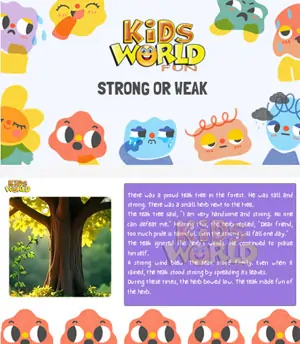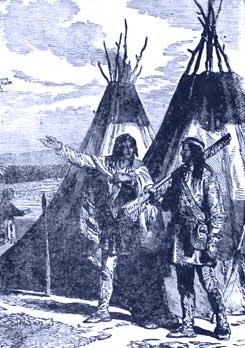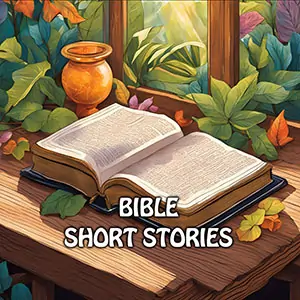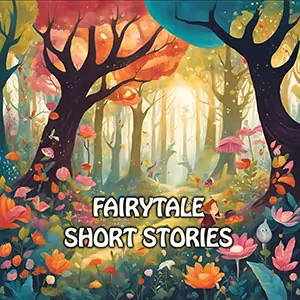Short Stories » Strong or Weak
Strong or Weak
There was a proud teak tree in the forest. He was tall and strong. There was a small herb next to the tree.
The teak tree said, “I am very handsome and strong. No one can defeat me.” Hearing this, the herb replied, “Dear friend, too much pride is harmful. Even the strong will fall one day.”
The teak ignored the herb’s words. He continued to praise himself.
A strong wind blew. The teak stood firmly. Even when it rained, the teak stood strong by spreading its leaves.
During these times, the herb bowed low. The teak made fun of the herb.
One day, there was a storm in the forest. The herb bowed low. As usual, the teak did not want to bow.
The storm kept growing stronger. The teak could no longer bear it. He felt his strength giving way.
He tried his best to stand upright, but in the end, he fell down. That was the end of the proud tree.
When everything was calm again, the herb stood straight. He looked around. He saw that the proud teak had fallen.
Moral: Pride comes before a fall.
Watch the story video ↴
Strong or Weak - Takeaway for Class 1,2,3
Being proud and boastful can lead to trouble. It’s better to stay humble and flexible, like the herb.
Strong or Weak - Takeaway for Class 4,5,6
This story teaches us that being overly proud of our strength and abilities can lead to our downfall. Sometimes, being humble and adaptable is the best way to survive challenges.
Strong or Weak - Takeaway for Class 7,8,9
The tale of the teak tree and the herb reminds us that arrogance and overconfidence can cause our failure. Flexibility and humility are often the qualities that help us overcome tough situations.
3 Fun Facts on Strong or Weak for Children
- Teak trees are very strong and valuable because their wood is used for furniture and ships, but in the story, pride makes the tree fall.
- Herbs are small but can often grow in places where bigger plants cannot survive, just like in this story!
- In nature, being flexible and able to adapt to change, like the herb, often helps plants survive storms.
Strong or Weak Quiz for Class 1,2,3
- What did the teak tree say about itself?
- How did the herb react during the storm?
- What happened to the teak tree after the storm?
Strong or Weak Quiz for Class 4,5,6
- Why did the herb advise the teak tree to be humble?
- How did the teak tree react when the storm grew stronger?
- What is the lesson we learn from the fall of the teak tree?
Strong or Weak Quiz for Class 7,8,9
- What does the story of the teak tree and the herb teach us about pride and humility?
- Why was the herb able to survive the storm while the teak tree fell?
- How can we apply the lesson from this story to our own lives, especially in challenging situations?
More about the proverb ‘Pride goes before a fall’
The original source of the proverb ‘pride goes before a fall’ is the Bible, the Book of Proverbs. Proverbs 16:18, reads "Pride goes before destruction, a haughty spirit before a fall,” in the New International Version. There are other instances also in the Bible where pride is condemned. Matthew 23.12 reads: "For whosoever will exalt himself, shall be brought low.” Proverbs 29.23 reads: "The pride of a man shall bring him low.”
Some scholars take this to mean that pride causes carelessness, which leads to errors and serious mistakes. Some others take it to mean that God will discipline proud people by causing events, which will induce humility in them.
There are plenty of examples in history that fulfill this adage. The story of ‘Titanic’ stands out. The ship had been declared unsinkable by its makers. The lack of enough lifeboats on the ship was also reportedly a result of this overconfidence. What happened to the ship later is history.
In Literature, this proverb from the Bible finds a place quite often. William Shakespeare has used it in his plays. King Lear, the tragic hero of the play ‘King Lear’ is brought down by one fatal flaw, pride, as well as folly.
In Macbeth, Act 1, Scene 7, the king confesses
“I have no spur
To prick the sides of my intent, but only
Vaulting ambition, which o'erleaps itself” (1.7.25-7)
Macbeth desires to kill King Duncan, to claim the throne for himself. It is a "vaulting ambition,” which is a guise of pride that is deprecated in the Bible. Sure enough, Macbeth meets his nemesis soon.

📑 Free Printable PDF Available!
👉 Download and Print this StoryWas this article useful?
We’d love to hear from you! Share your valuable feedback and suggestions to help us improve your experience and serve you better.
❤️ If you’re happy with our website, please consider supporting us — Donate Now!
🌟 Or leave a positive review here to encourage our team!















